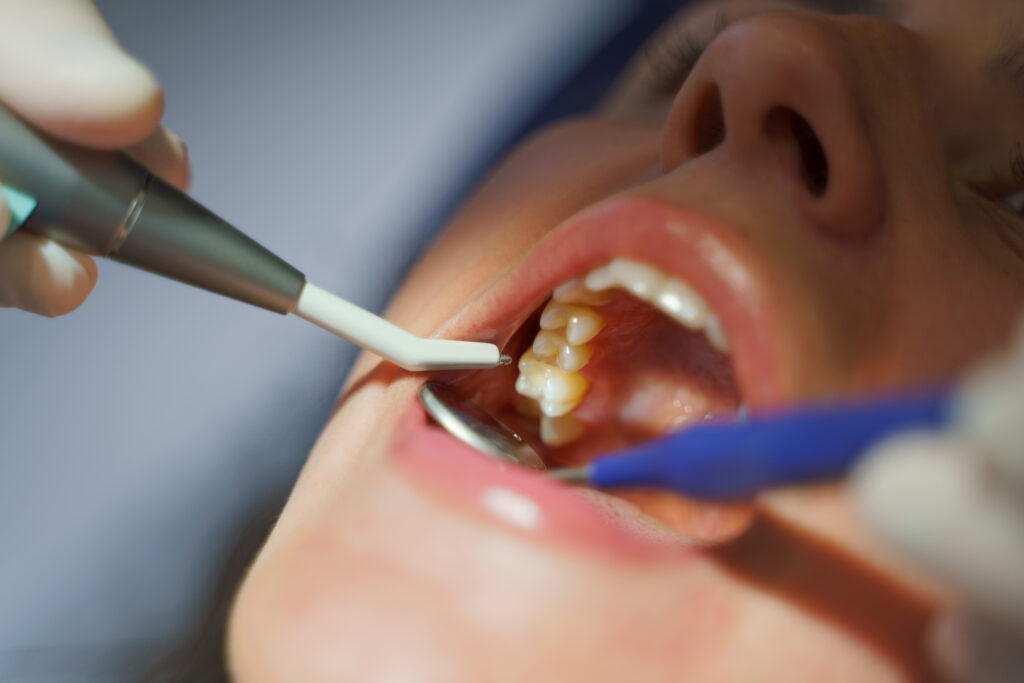What to Expect in This Article

- Learn how to recognize the signs that your tooth abscess is healing versus when it might still be infected
- Discover important warning symptoms and when to seek professional help
- Get actionable advice for supporting your healing process and staying healthy
- How to understand the healing process of a tooth abscess and what signs to look for
- Key warning signs that may indicate ongoing infection or complications
- Practical recovery tips and aftercare recommendations for optimal healing
A dental abscess is a serious and painful infection that forms a pocket of pus in or around the root of a tooth. If you’ve recently undergone treatment for one, you’re likely eager to feel better and get back to normal. But how can you be sure the infection is truly going away? Understanding the signs of healing is key to a successful recovery and preventing further complications.
This comprehensive guide will walk you through the healing process, highlight positive improvements, discuss factors that influence recovery, and give practical suggestions for ongoing dental care. With this knowledge, you can feel confident in your ability to support your oral health both now and in the future.
Understanding a Dental Abscess
A dental abscess is your body’s response to a bacterial infection in the tooth’s pulp—the soft tissue deep inside that contains nerves and blood vessels. This may result from deep decay, a cracked tooth, gum disease, or trauma. When bacteria invade, your immune system sends white blood cells to fight them off, leading to the formation of pus. The accumulation of pus creates pressure, causing the intense, throbbing pain many people associate with an abscess.
There are different types of dental abscesses:
- Periapical Abscess: Occurs at the tip of the tooth’s root, typically caused by untreated decay or trauma.
- Periodontal Abscess: Forms in the gums at the side of a tooth root, often linked to severe gum disease.
- Combined Abscess: In some cases, both forms may be present if infection spreads from the tooth to surrounding gum tissue.
Because it’s a serious infection, an abscess will not go away on its own. Professional dental treatment, such as a root canal or tooth extraction, is necessary to drain the pus, clean the area, and address the source of the infection.
The Healing Process: What to Expect
The body’s natural defense system goes into high gear once the abscess is treated. The timeline and symptoms of healing can vary based on the abscess’s size, your overall health, and how promptly you received care.
A Typical Healing Timeline
- Within 24-48 hours: Significant reduction in pain and swelling for most people after drainage or dental intervention.
- First week: Swelling continues to go down; any draining fistula should close and pain should resolve. Redness of the gums or skin subsides.
- 2-4 weeks: Complete healing of soft tissues; bone and tooth structures continue gradual recovery.
Clear Signs Your Abscess is Healing
After receiving treatment from your dentist, you should notice significant improvement in your symptoms. These positive changes are the best indicators that the infection is resolving:
- Pain Reduction: Noticeable decrease in pain as pressure from the abscess is relieved and inflammation subsides. While some tenderness may remain for a few days, severe pain should not return.
- Swelling Goes Down: Swelling in the face or gums gradually decreases as the infection clears. The affected area should return to its normal size.
- Drainage Stops or Lessens: If the abscess was draining pus, this drainage should reduce and eventually stop as healing progresses.
- Return to Normal Color: Redness in the gums or skin fades and healthy gum tissue appears pink and firm.
- No More Fever: If you had a low-grade fever, your body temperature should return to normal.
- Resumed Normal Function: Eating, drinking, and speaking become easier as pain, swelling, and sensitivity resolve.
Warning Signs of a Persistent Infection

Sometimes, the initial treatment may not completely eliminate the infection. Watch for these warning signs, which indicate the abscess may not be healing or could be getting worse—seek dental care immediately if you notice them:
- Pain Worsens or Returns: Intense pain that comes back after a period of relief suggests persistent infection.
- Swelling Increases or Spreads: Swelling that doesn’t improve, gets larger, or spreads to other parts of your face or neck.
- Foul-Smelling Discharge: Persistent, bad-smelling, or discolored drainage from the abscess location.
- A Persistent Fever: Ongoing or new fever signals that your body is still fighting infection.
- Difficulty Breathing or Swallowing: Swelling that interferes with breathing or swallowing is a medical emergency.
- General Malaise: Extended fatigue or a feeling of being run-down may indicate unresolved infection.
The Role of Antibiotics
A common question is whether antibiotics alone can cure a dental abscess. According to current American Dental Association guidance, antibiotics are not recommended for most dental pain and swelling. The main treatment for an abscess is a dental procedure to remove the source of infection.
- When are antibiotics used?
- When there is visible swelling, fever, or a spreading infection.
- As a supplement—never a substitute—for draining and cleaning out the abscess.
- Why does this matter?
- Overuse of antibiotics can lead to resistance and reduced effectiveness, as noted by research in the Journal of the American Dental Association.
- Targeted dental procedures remain the cornerstone of effective abscess treatment.
Common Questions About Abscess Healing
How long does it take for a tooth abscess to heal?
- After a root canal or dental extraction: Pain and swelling should decrease significantly within a few days. Complete healing of tissues can take a few weeks to a few months, but discomfort usually resolves much sooner.
- If left untreated: An abscess won’t heal on its own and can persist or worsen, potentially causing serious health risks.
Can an abscess heal without bursting or draining?
For most dental abscesses, draining the pus is necessary for healing. Rarely, small abscesses may be absorbed by the body, but most require professional drainage. Never attempt to burst an abscess yourself, as this could worsen the infection.
Does drainage mean the abscess is fully healed?
While drainage relieves pressure and removes much of the bacteria, it is only one part of healing. The underlying cause must still be addressed by your dentist. Without completing proper dental treatment, the abscess can return.
How do you know if infection is fully gone?
Follow-up dental exams—and sometimes dental X-rays—are used to ensure healing. Absence of pain, swelling, and healthy-appearing tissue are all good signs.
Prevention: Reducing the Risk of Future Abscesses
To minimize your risk of developing future abscesses:
- Brush and Floss Daily: Removes bacteria and debris.
- See Your Dentist Regularly: General dentistry provides early detection and management of dental problems.
- Address Dental Issues Promptly: Treat broken, chipped, or sensitive teeth as soon as possible.
- Protect Teeth from Injury: Use a mouthguard during sports or if you grind your teeth at night.
Supporting Your Recovery
Take these steps to ensure a smooth healing process:
- Complete Any Prescribed Medication: Finish the full course of antibiotics if prescribed.
- Practice Gentle Oral Hygiene: Carefully brush and rinse as directed by your dentist; avoid disturbing the healing area.
- Eat for Healing: Favor soft, nutritious foods and avoid anything hard or sticky.
- Attend Follow-Up Appointments: Your dentist monitors your recovery and confirms that healing is on track.
- Listen to Your Body: Report unexpected symptoms promptly.
When to Seek Emergency Help
Get immediate attention if you experience:
- Difficulty breathing or swallowing
- High fever that does not improve
- Rapidly spreading swelling or redness
- Severe headache or confusion
These symptoms can be life-threatening and require prompt emergency care.

Conclusion: Taking Charge of Your Recovery
Healing from a tooth abscess requires not only clinical care, but also personal vigilance and long-term dental health habits. By understanding the signs of recovery, seeking prompt care for concerning symptoms, and maintaining regular dental visits, you can reduce your risk of complications and safeguard your oral health.
If you are ever unsure about your healing or have questions about abscess recovery, your dental care team is your best resource for personalized support and advice.
At Lane & Associates, our experienced team is committed to helping you through every phase of abscess treatment and recovery. From accurate diagnosis to effective procedures and attentive follow-up care, we ensure you receive expert, compassionate service tailored to your needs. If you’re experiencing dental pain or have concerns about healing, schedule an appointment with us to receive the quality, patient-focused care you deserve.

